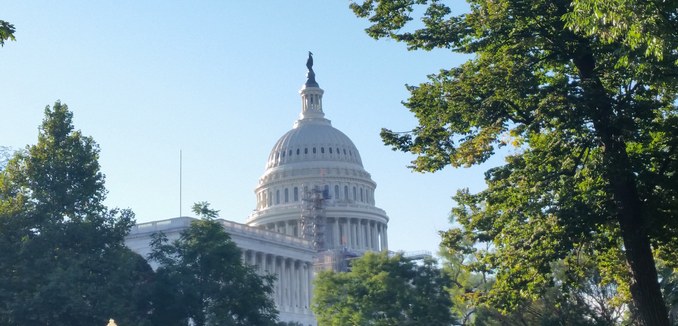Documents containing previously-unpublished details of the nuclear deal with Iran could be released after Donald Trump is inaugurated as president next month, The Daily Beast reported Monday.
Members of the incoming administration, including Gen. Michael Flynn, Trump’s pick to be national security advisor, and Rep. Mike Pompeo (R-Kans.), his pick for CIA director, are pushing for release of the documents.
The documents, which the Obama administration has refused to release publicly, are stored in special rooms in the Capitol complex called Sensitive Compartmentalized Information Facilities (SCIFs) that are normally used for storing top-secret information. However, the Iran documents are not officially designated as classified, and therefore could be released by the Trump administration relatively easily.
The documents include projections of how Iran’s nuclear program is expected to progress under the terms of the deal, communications about the deal between Secretary of State John Kerry and other foreign ministers, and exemptions given to Iran by the commission that was created to oversee the deal’s implementation. Also included are a set of documents signed by State Department official Brett McGurk that outline the terms of the U.S. Treasury Department’s release of $1.7 billion to Iran in exchange for four American hostages.
Despite the fact that the documents are not classified, “a confidential clearance was required to see the McGurk documents and a secret classification was required to view the joint commission documents in the Congressional SCIFs,” The Daily Beast’s Tim Mak wrote.
“The American people know the Iran deal is bad. I can tell you it’s even worse than most people think. The Obama Administration has long known its position is indefensible, so they’ve chosen to hide unclassified documents from the public,” said Rep. Peter Roskam (R-Ill.). “If this information is not classified, it should be made available to the public.” His view was echoed by Sen. Robert Menendez (D-N.J.), a leading Democratic critic of the deal, who told Mak that the documents “ought to be released.”
“Everything should be made public. I support that effort. Everything should be made clear to the American people,” added Senate Armed Services Committee chairman John McCain (R-Ariz.).
Numerous aspects of the nuclear deal with Iran have been surrounded by secrecy, a point highlighted last week by Sen. Gary Peters (D – Mich.), who called on the International Atomic Energy Agency (IAEA) to provide more details of Iran’s nuclear program so that Iran’s compliance with the deal could be confirmed. Peters’s concerns about the IAEA’s lack of details echoed statements made in recent weeks by former IAEA deputy director-general Olli Heinonen.
When the Associated Press revealed a secret side agreement between Iran and the IAEA allowing the Islamic Republic to effectively self-inspect its Parchin military site, Heinonen wrote that the terms of the agreement “depart[s] significantly from well-established and proven safeguards practices.”
[Photo: soccerdhg / Flickr ]




